How Victoria can prevent further trauma as road deaths soar
The majority of road trauma on Victorian roads this year has been preventable, authorities say, but what can be done to stop needless deaths?
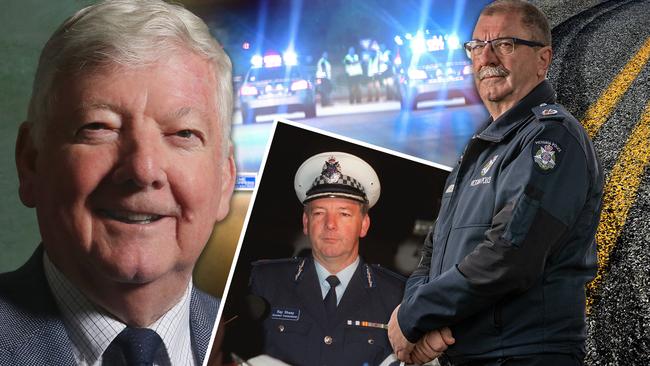
Victoria
Don't miss out on the headlines from Victoria. Followed categories will be added to My News.
With most road deaths in Victoria described as “avoidable”, much of the deaths on Victorian roads could be prevented by a change in driver behaviour.
Former Victoria Police Assistant Commissioner Ray Shuey, who still campaigns for road safety, told the Herald Sun the issue was that we were “riding on the coat-tails of history”.
“We’re reinventing the same sort of strategies over and over again. We’re not getting anywhere, just treading water,” Mr Shuey said.
“We’re not critically analysing what happened in the last 10 years and seeing what works and what doesn’t work.”
He “firmly believes” the solution to driving down road trauma lies with community engagement.
“It needs to have the key players at each community level,” Mr Shuey, who helped legislate 50km/h speed limits in residential streets, said.
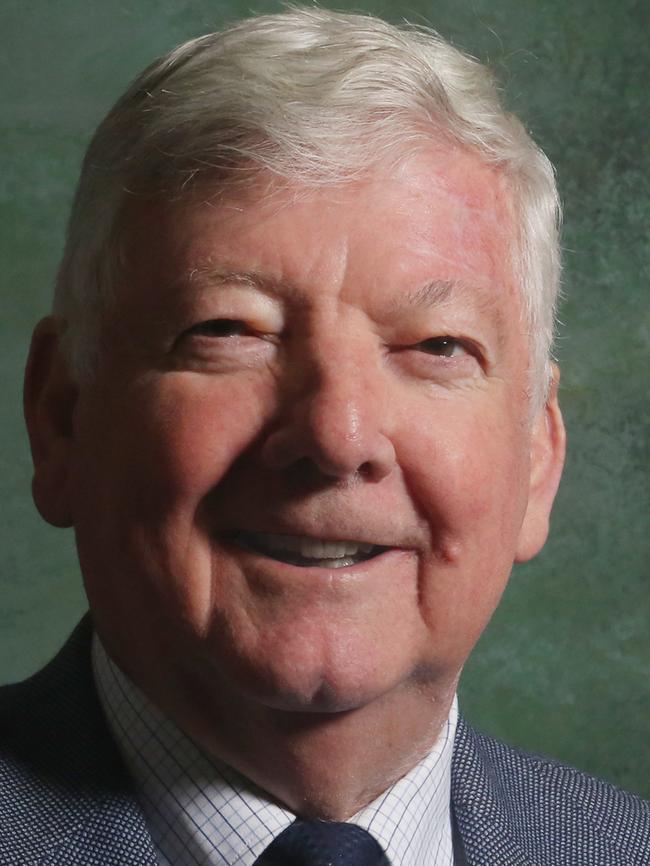
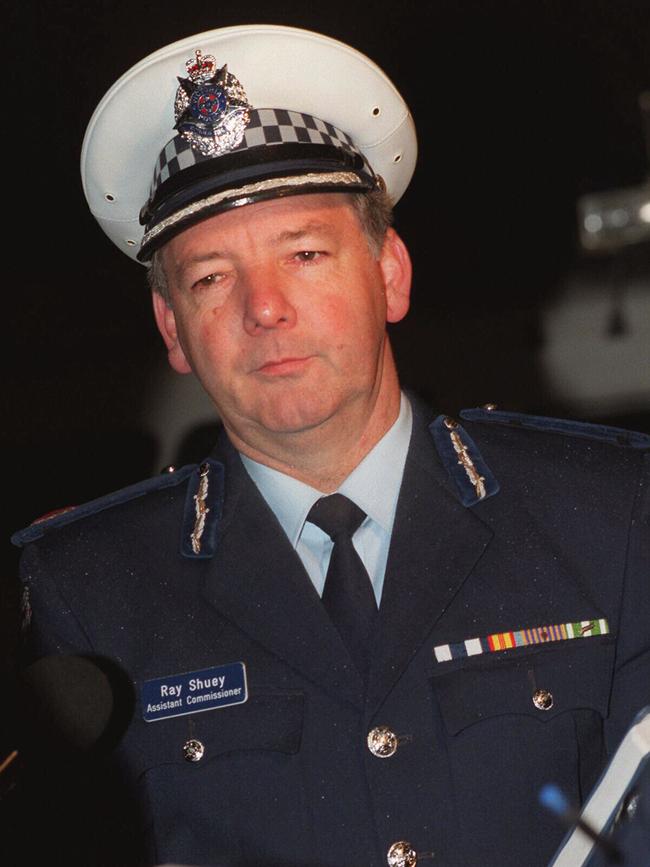
“Council, the mayor, concerned parents, emergency services – you end up with a group of about 20 people who have ideas to share.”
Community councils existed in the 80 and 90s and had support from the state government, which funded programs to address local road safety issues.
Describing them as “very, very beneficial”, they would share ideas about what was working in their respective municipalities during annual meetings.
“It creates an impetus to involve the community in what is a community problem,” Mr Shuey added.
Noting there needed to be a complementary approach to road trauma – including better infrastructure and road safety education from kindergarten – Mr Shuey said the appointment of a Road Safety Commissioner independent of government who could “crack the whip” was also a crucial part of the puzzle.
“This, we believe, should be in every state in Australia. It needs to be apolitical because a lot of that funding all goes to political grants.”
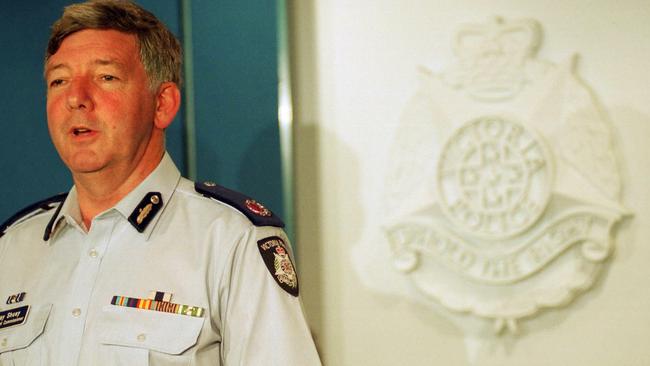
Marcelo Vidales, head of Road Safety Victoria, said most road deaths were avoidable.
“Our commitment to reducing this trauma is unwavering and it starts with delivering hundreds of road safety programs targeting young Victorians from preschool through to primary and secondary school,” he said.
One group that is trying to drive down road trauma through education programs is Amber Community.
It runs education programs in schools and workplaces but one of its most renowned, and most effectual programs, is its road trauma awareness seminars.
They are largely attended by participants who have been directed to attend by the courts or their defence lawyers due to driving offences, education manager Chris Harrison said.
She said this was an “opportune time to raise awareness” of why laws were in place for road users and why it was important to abide by them.
“ … So they are safer on the roads not just for themselves but for each other,” Ms Harrison said.
Through the program participants hear powerful first-hand accounts of the impact of road trauma on emergency services, witnesses and the loved ones of people killed or injured.
Some speakers are also people who have killed or injured another person on the road as a result of an error.
Six-month follow-ups are conducted after these seminars and Ms Harrison said participants always remembered the stories of the lived experiences.
“We don’t have recidivism data but we certainly have lots of self-reported information,” Ms Harrison said.
“To me, when they can clearly remember a person’s story and their name six months, 12 months or two years after the session then that message has clearly had an impact on them.”
She added that participants often reported that they had changed their driving behaviour after attending a seminar.
With 16 years of experience running road safety education programs, she believes it would be beneficial to roll them out earlier to pre-drivers or when drivers upgrade from their red to their green P-plates to create real cultural change.
“That would be even more proactive and preventive. It would be an opportune time - they’ve had a bit of experience of driving on their own and possibly had some near misses.
“Education is really an important part of the whole picture. We want to change what’s going on out there with all the deaths and serious injuries, and the belief that we can get to zero.
“If we want to shift a culture then we need to keep being consistent because a cultural shift takes years. If we can start with our young people then we will start to see a shift.”
If you have been touched by the incident near Hamilton and would benefit from talking to someone, please don’t hesitate to book an appointment with one of our counsellors at 03 8877 6900 | https://t.co/EghpdTYwFxpic.twitter.com/XkaU18v9EC
— Amber Community (@AmberCommunity_) May 29, 2023
One program that is offered to drivers before they transition to solo driving is RYDA, a not-for-profit program that is funded through councils and sponsorships.
The program receives some government funding however, head of program delivery John Elliott said the support from the state government “wasn’t as strong as it should be” given the trauma numbers.
The 2023 road toll numbers paint a “gloomy” picture but Mr Elliott said there was “absolutely something” that can be done to address the “terrible numbers”.
“It’s changing the way people see road use, it’s also changing the way society sees road use,” he said.
“I think the more government’s support safer car choices by mandating what car manufacturers put in, but also offsetting the costs of some of those safety features the better we will all be.
“Then the other element is safer roads. It’s all these things.”
Mr Elliott said “shock and awe” was not the way to go when educating young drivers, instead “helping them to understand their role as a road user and change their attitudes towards driving” was a better approach.
“We have the workshops, then what we do is we build on that with pre and post workshop materials as well,” Mr Elliott said.
“These sorts of programs do have an impact, they have a positive impact on road trauma.
“The more people who do this program, the or program like this, the more the more people think, and have a different attitude towards driving, especially when they’re younger, because these attitudes that they’ve formed in their early years, that sort of sets the way they drive for the rest of their life.”
Mr Elliott said through Covid lockdowns Victorian’s had proven they could “take care of each other”.
“Let’s do it on the roads as well,” he said.
According to the TAC, measuring Victoria’s road safety progress by focusing on year-to-year fatality numbers can “be ambiguous” and what is important is the long-term trend.
This shows a sustained reduction in lives lost in the face of a significant population increase and vehicles on the road.
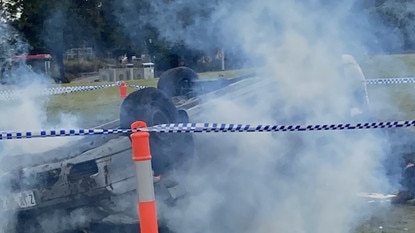
It said the state had made “great strides in preventing death and serious injury over the past few decades” with 2022 the fourth lowest number of lives lost since the TAC began in 1987.
However, it conceded there was still “much to be done” to reach the government’s 2030 target and create a future free of road trauma.
Jurisdictions such as the United Kingdom, Sweden and Norway have substantially lowered the number of people seriously injured and killed by taking a holistic approach to improving all elements of the road network.
The same research and knowledge is available to Victoria.
It has launched numerous campaigns this year to address key road safety issues such as speed and distraction.
TAC acting chief executive Tony Dudley said the organisation “worked everyday to deliver road safety initiatives to keep Victorians safe, but driving down road trauma takes all of us doing the right thing every time we hit the road”.
“Stay focused when you’re behind the wheel, wear a seatbelt and don’t take risks by travelling above the speed limit or drinking and driving.”
Police Minister Anthony Carbines reiterated the message.
“Every life lost on our roads is a tragedy and it’s shocking to see that so many people are putting their safety and the lives of others at risk.”
“Driver distraction is a major contributor to serious and fatal collisions, and yet it is completely avoidable.
“I urge Victorians to buckle up and remove as much distraction as possible to them while they’re driving.”
- With Brittany Carlson




